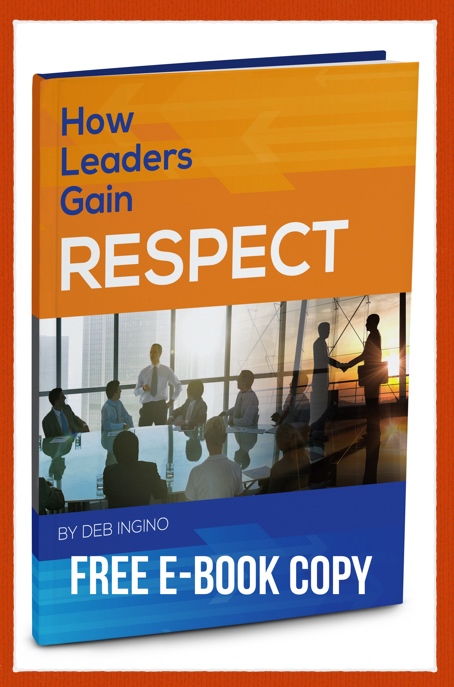
Over the past several decades, and with more women taking places in leadership positions, an interesting and added facet of business has taken hold. It is the concept of emotional intelligence (EQ). Essentially, it is the idea of bringing both head AND heart to business – logic and a level of intuition when it comes to dealing with others.
In its early days, there was pressure to ignore the emotional intelligence side of the equation and to focus on the rational, logical, and factual. It was business by the numbers, and data ruled.
But over time and in a marketplace built on connections and collaboration, emotional intelligence became an accepted and necessary part of the equation, no longer to be dismissed as a sidebar. It is now as critical to business as cognitive intelligence.
It is business by the number of PEOPLE versus just business by the numbers, in essence.
The fact is, both facets are critical. Swing too far in either direction, and there are imbalances. But get the intelligence equation right in your business, and you have something of great value.
Here are the key elements of the intelligence equation
1. Facts AND Feelings
When assessing results and opportunities, consider both the facts and the feelings involved. For example, say you lead a major corporation. You have the opportunity to move your corporate headquarters to a new location 50 miles away, which will save the company millions of dollars over time. Logically, this would appear to be the perfect move.
But before you decide, also consider the EQ factor of how this will affect your employees. Are they willing to travel the extra miles to stay on with the company? Can they accommodate the extra travel time that will be required, all while juggling current family and community responsibilities? How many would be willing to move in order to stay on with the company? Would they maintain a strong level of customer service during these transition points?
If you decide this is, indeed, the best move for your company; at least consider ways to help your employees make the transition. For those who opt to discontinue employment, establish incentives to keep them on and fully engaged until you make the transition to the new headquarters location.
For those who decide to stay, you could consider adjusting work schedules, adjusting pay to compensate for the added travel expenses, and providing relocation assistance where possible and warranted. You could even consider added incentives.
Addressing EQ in times of change helps ensure the work is not disrupted, which would affect the company’s bottom line. Left unaddressed, the move that was to save the company money could end up costing more than it saves.
Logic says the move is good for numbers. Emotional intelligence makes it good for the people as well.
2. Process AND People
This concept applies both within a company and outside its proverbial walls. In business, you must have systems and processes. In this day and age, you also need automation. But you must also always consider the human component in your business. Are the systems, tools, and processes you are choosing to use bringing benefit to the people as well.
Do your policies and procedures address both the letter of the law and the needs of your people? In a society where, quite often, both parents work, the work schedules and attendance policies of yesteryear may not reasonably apply.
In this scenario, addressing EQ may mean giving your employees flex time and a chance to work from home on one or more days a week. This is not at the exclusion of established expectations and guidelines for principle and practices; it is to help make them possible for today’s workforce.
Are your automated systems geared toward making it easy for YOU or for your CUSTOMERS? There is a difference.
Logic engages systems, processes, and automations. Emotional intelligence adapts them to fit the people you employ and the people you serve.
3. Statements AND Questions
“Just the facts.” Period. End of discussion.
“Just do this.”
This used to work, but not now. Now, we need more than facts and directives. We need discussion and collaboration. Yes, as leaders, we must be direct and decisive; but we must also be good listeners. Learn to ask questions and listen to feedback from your people. Ask for ideas for new and better ways to do things.
In fact, starting with questions and brainstorming ideas, and then weighing the options logically is a highly effective formula for success.
Logic limits the options, and there is a place and time for that. Emotional intelligence creates possibilities and ideas.
4. Talent AND Teamwork
A successful company will note hire from the application alone. Applications highlight talent and experience. They indicate intelligence, skill, and innate abilities.
But applications do not effectively identify the emotional intelligence factors of teamwork, collaborative ability, and culture. These come from person-to-person interaction in an interview, just like they come from person-to-person interaction in the workplace.
Company leaders still do candidate interviews, and this is the reason.
Logic identifies the most qualified candidates. Emotional intelligence identifies the most effective candidates.
5. Individuality AND Community
We tend to think of logical thinkers as individuals who are quiet, reserved, and who do their work in solitude. While this is certainly true, this is not a healthy option in exclusivity. Every individual in your business and on your team must work in community as well – where they bring their individual strengths, skills, and thought processes to a collective whole in service to the organization.
As a leader, look for those gifted rational thinkers who can think deeply and solve problems; but look also for those who can think to that level and yet communicate well with others.
Logic creates a solution to a problem; Emotional intelligence delivers the solution to your customers and clients.
These two types of intelligence must work hand in hand in order for your company to be most effective. Master the balance in these areas, and you have the ability to create amazing results!
As the CEO of Strength Leader Development, Deb Ingino is a highly sought-after international executive mentor, coach, trainer and speaker. Deb is well versed in global business operations and helps business leaders and their teams to discover and leverage their strengths, so they can create highly collaborative teams that deliver great results. With a refreshingly direct style, Deb helps leaders and their teams to deliver profitable results. Connect with Deb to learn more about her mentorship and coaching programs to equip you with advanced strategies to elevate your results.
When you have a strong team that collaborates well,
you have a competitive advantage.
Click here to get instant access to the complimentary FREE e-book!

+ view comments . . .